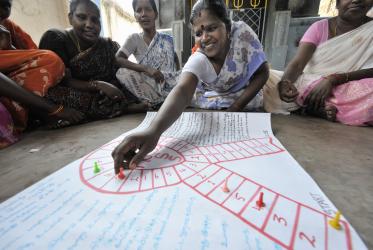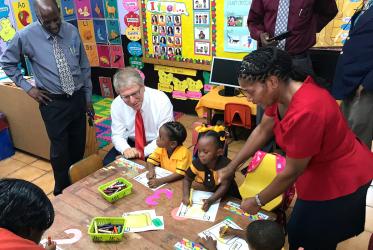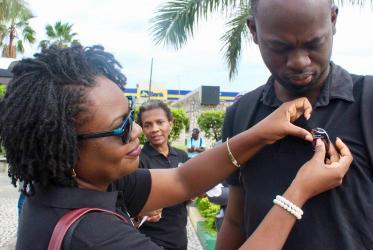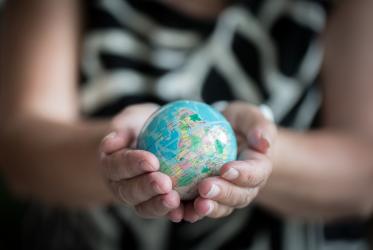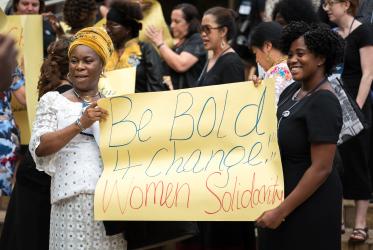Displaying 1 - 20 of 28
COVID-19 in conflict zones: “a crisis within another crisis”
27 November 2020
Young people in Togo: “Hear our voice! We want to tell our stories!”
07 November 2019
Knowledge of gender roles deepens in Togo
03 June 2019
Workshop in Jamaica focuses on human rights
16 May 2019
Jamaica vantage point for Caribbean ecumenism
05 October 2018
Linette Vassel: “We need to examine power more deeply as women”
03 October 2018
A safe space for sinners to change and for pain to be shared
03 August 2017



